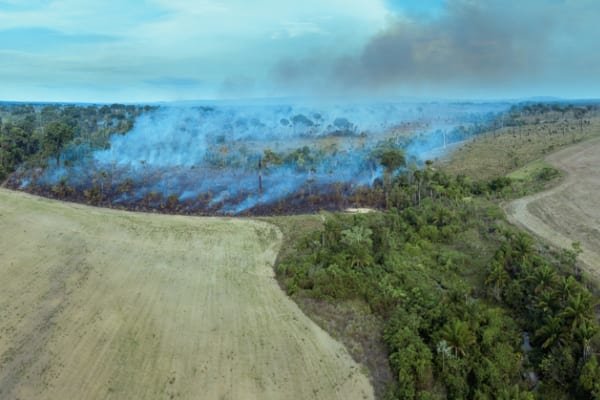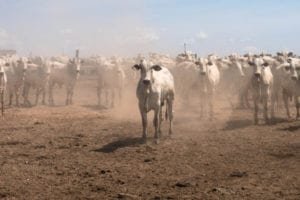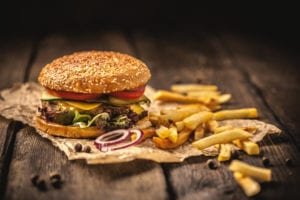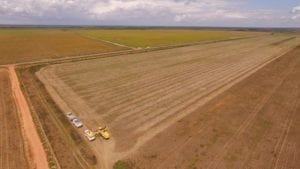NGOs Mighty Earth and Greenpeace UK have joined forces in a campaign against Tesco urging the retailer to cut ties with supplier companies that are driving the destruction of Brazil’s Amazon and Cerrado.
An overwhelming majority (88%) of Tesco customers in the UK agree that supermarkets should not do business with companies that are driving the destruction of forests in Brazil, a new YouGov poll conducted for Mighty Earth shows.
Despite this, the supermarket giant keeps sourcing from the companies most responsible for driving deforestation in Brazil – including subsidiaries of JBS, the world’s largest beef company, and Cargill and Bunge, the two biggest soy traders globally – which manufacture animal feed ingredients.
New data from Mighty Earth’s Soy and Cattle Deforestation Tracker finds twice as much deforestation in the supply chains of these soy traders and meatpackers in the past year compared with the year before.
A spiral of deforestation
The monitoring covers the period March 2019-March 2021 and shows that the two largest European importers of soy, Bunge and Cargill, are the worst performing soy traders.
Cargill is linked to more than 66,000 hectares of clearance, while Bunge is connected to almost 60,000 hectares of deforestation in just two years – an area larger than the New Forest.
Despite this spiral of deforestation, in only one case has a company ever cut ties with a supplier found to have cleared land, out of the 235 recorded and reported by Mighty Earth’s Deforestation Tracker.
The worsening trend in deforestation driven by soy and meat traders correlates with the overall increase in forest loss in Brazil.
Last year, deforestation in Brazil was greater than the next six countries combined, according to data from the University of Maryland and the digital monitoring platform Global Forest Watch.
Industrial meat production includes wiping out forests to raise cattle and to grow soy to feed chickens and pigs. Soy and beef are two of the three commodities imported into the EU that caused the most deforestation between 2005 and 2017.
Tesco ‘failed to act’
Tesco PLC is the largest supermarket in the UK holding some 27% of the market in March 2021. In the face of the coronavirus pandemic, the company increased group sales by 7.1% to over £53.4 billion from 2020-2021.
Operating profits in the UK and the Republic of Ireland increased by 11.4% over the same period.
‘Forest destruction in Brazil driven by supermarket meat is getting worse every year. This is accelerating climate change and wiping out the home of the jaguar.
Tesco customers are crystal clear, they do not want their supermarket to do business with the companies involved in this destruction. It’s high time Tesco listens to its customers and drop the worst performing companies driving the destruction of Brazilian forests – JBS, Cargill and Bunge.’
ROBIN WILLOUGHBY
UK director of Mighty Earth
 Play Video about This Rock Might Just Save The World
Play Video about This Rock Might Just Save The World Play Video about Play 2 hours of rock
Play Video about Play 2 hours of rock Play Video about Play 2 hours of brook
Play Video about Play 2 hours of brook Play Video about Play 2 hours of sheep
Play Video about Play 2 hours of sheep















































